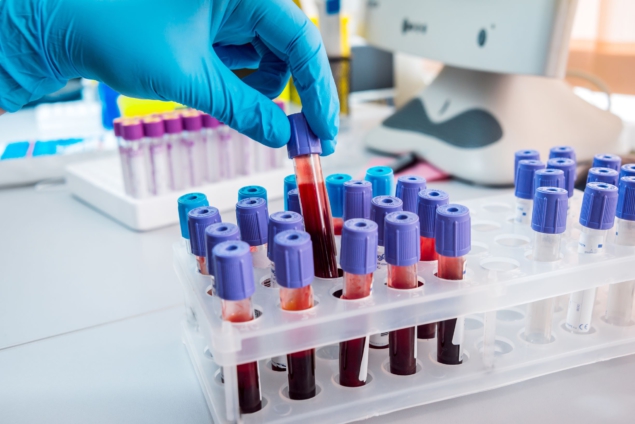The Ghana National Household Registry is a unit under the Ministry of Gender, Children and Social Protection with a mandate to establish a single household register from which social protection programmes will select their beneficiaries.
A programme that some will say is long overdue given the importance of data and its effects on policy making and planning.
No plan can be considered effective in the absence of an accurate data, the reason the national distribution of cooked food and food supplies probably became a fiasco at the time of the partial lock down due to the Corona Virus Disease 2019 Pandemic.
I recollect writing an article on that fact that many families raising children with special needs and in need of the relief items have been left behind, because most of them cannot go out and queue, may not know who their District Assembly representative is and so they were practically left out.
Children with cerebral palsy, fall into the categories of persons considered to be vulnerable given that they are disabled, however, usually when persons with disabilities are mentioned, it seems to me that it is not mentioned with children with cerebral palsy in mind.
Well…how are they to go and queue for support, when first of all, they are children and they are limited by movement and most often speech, who is to speak for them?
At the height of Ghana’s partial lock down and food distribution programme was the thought of the need for data on the various categories of disabilities and more especially children with disability.
I don’t think Ghana has specifically made a decision of getting data on for instance children with cerebral palsy and their families.
It was therefore welcomed news when I heard that the Ghana National Household Registry had started an emergency data collection for the poor and vulnerable in Accra.
However, a few questions continue to linger on my mind, is my daughter with cerebral going to be enumerated? When I shared this welcomed news of data collection on the Special Mothers Platform, a few questions were asked which I will repeat in this article
Mizzen (Not the real name) is a mother of four young girls, one of her four girls lives with cerebral palsy, Mizzen lives with her husband in a plush house around Amasaman, because of her children, especially the one with cerebral palsy, she is not working, along the line, her husband also loses his job, now they struggle to get three square meals sometimes, how will she be classified? Vulnerable?
Abena Manu, a mother of a child with cerebral palsy, worksas an Executive Secretary in a good organization, her husband also works in a good organization, however, to sustain their daughter with cerebral palsy in an expensive private school that is charging fees in thousands of dollars a term, they have to put both incomes together to pay school fees with very little left to cater for other essential life needs.
Abena has another daughter apart from her daughter with cerebral palsy, in her own words she says “We have no savings at all, all our income is used to pay for the school fees of one child who lives with cerebral palsy, will Abena be considered vulnerable?
The examples can go on and on, so beyond covid 19, what will the Ghana National Household Registry data look for.
For many families raising children with cerebral palsy, it is not just about giving out cooked food or relief items, it goes beyond that.
It is about having an Inclusive society, it is about implementing the already existing policies such as the Inclusive Education policy, it is about having affordable services handy such that it does not have to cost an arm and a leg to access therapy services, it is about being able to have some respite as a mother and “living” again.
The Ghana National Household Registry among its objectives will support inter-institutional cooperation to improve the impact of social spending and elimination of duplication.
The Registry also hopes to allow the development of accurate socioeconomic analyses on poverty to support development of plans and the design and development of specific programmes targeted to vulnerable and or low income sectors.
Latest Stories
-
Joy FM Prayer Summit for Peace ends in electrifying worship and prayer
2 hours -
The Conscience of Leadership: A call to President Akufo-Addo on Ghana’s environmental devastation
2 hours -
Ghanaian youth unaware of their right to hold politicians accountable – Youth Bridge Foundation
3 hours -
Judge delays Trump sentencing for a third time
3 hours -
2024 WAFCON: Ghana drawn against defending champions South Africa in Group C
4 hours -
Photos from DW-JoyNews street debate on ‘galamsey’
5 hours -
Mimmy Yeboah: Blending heritage with global sophistication, confidence redefined through couture
5 hours -
100 Most Influential People Awards 2024: Brain Hill International School’s Director Mary Anane Awuku honoured
5 hours -
Akufo-Addo commissions 97-km Tema-Mpakadan railway line
5 hours -
Majority requests recall of Parliament
6 hours -
Kanzlsperger and Professor Quartey support WAFA with medical Donation
6 hours -
Gideon Boako donates 10 industrial sewing machines to Yamfo Technical Institute
6 hours -
‘Golden Boy’ Abdul Karim Razak honored at WAFU-B general assembly
6 hours -
Buipewura Jinapor secures Vice Presidential position in National House of Chiefs with record votes
6 hours -
2024 election: I want results to come out like ‘milk and honey’ – Toobu
6 hours

